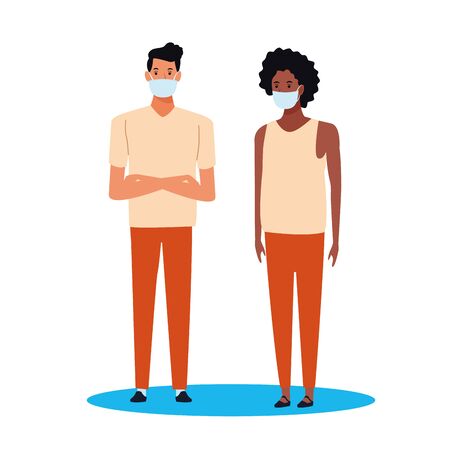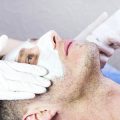Introduction: Redefining Modern Masculinity
Across the United Kingdom, the traditional idea of masculinity is undergoing a significant transformation. No longer confined to age-old stereotypes, modern British men are increasingly embracing a more open and nuanced understanding of what it means to be masculine. This evolution is not just about attitudes but is also visibly reflected in lifestyle choices, including a growing interest in personal care and aesthetic treatments—often referred to as “tweakments.” As societal norms shift, men across the UK are discovering new ways to express confidence and self-assurance that go beyond conventional expectations. The willingness to invest in appearance and well-being is now seen as a sign of self-respect rather than vanity, marking a pivotal moment in how masculinity is perceived and practised. This article explores the changing face of masculinity in Britain, examining the cultural shifts that have led to greater acceptance of tweakments among men from all walks of life.
2. Understanding Tweakments: What Are They?
The term ‘tweakments’ has become increasingly familiar across the UK, especially amongst men seeking subtle improvements to their appearance without undergoing full-scale cosmetic surgery. Unlike traditional surgical procedures such as facelifts or rhinoplasty, tweakments are minimally invasive treatments designed to enhance or refresh one’s look with minimal downtime. These procedures are typically carried out in clinics rather than hospitals, and they appeal to those who want natural-looking results without dramatic changes.
Popular Tweakments Among British Men
| Tweakment | Description | UK-specific Term/Usage |
|---|---|---|
| Botulinum toxin injections | Smooths out fine lines and wrinkles, often called ‘Brotox’ when marketed to men. | Anti-wrinkle injections |
| Dermal fillers | Adds volume to cheeks, jawline, or under-eye hollows for a more defined look. | Filler treatments |
| Non-surgical nose reshaping | Uses fillers to subtly alter the shape of the nose without surgery. | Lunchtime nose job |
| Laser skin resurfacing | Improves skin texture and reduces blemishes or scars. | Laser treatment |
| Hair restoration treatments | Treats thinning hair with non-surgical methods like PRP (platelet-rich plasma). | Hair loss injections |
The Difference from Traditional Cosmetic Surgery
Tweakments stand apart from conventional plastic surgery in several key ways. While surgery often requires general anaesthetic, lengthy recovery times, and significant alterations to facial features or body shape, tweakments can usually be performed in under an hour with only topical numbing cream. The results are generally temporary—lasting anywhere from a few months to a year—making them attractive for those who wish to experiment without long-term commitment.
Cultural Relevance in the UK Context
The discreet nature of tweakments aligns well with British cultural preferences for understatement and subtlety. Rather than aiming for a drastic transformation, most men seek minor adjustments that help them look “fresher” or “less knackered.” This approach fits with the British ethos of self-improvement without overt showiness, making tweakments particularly appealing for busy professionals and those concerned about social stigma around cosmetic enhancements.

3. Cultural Shifts: From Stigma to Self-Care
The British approach to male grooming and tweakments has undergone a marked transformation in recent years. Traditionally, there was a certain reticence—perhaps even embarrassment—among men when it came to discussing or pursuing aesthetic treatments. This hesitation was rooted in the longstanding notion that masculinity equates to ruggedness and stoicism, with little room for self-care rituals perceived as feminine. However, this stigma is steadily eroding, replaced by a more open and nuanced understanding of what it means to look after oneself as a man.
Media representation has played a pivotal role in this cultural shift. Television shows, lifestyle magazines, and social media platforms are increasingly showcasing men who take pride in their appearance. Whether it’s reality TV personalities sharing their tweakment journeys or mainstream publications featuring male skincare routines, these portrayals have helped normalise conversations about aesthetics among men. As a result, the idea that self-improvement and self-care are unmanly is being challenged and redefined.
Celebrity advocates have also contributed significantly to changing perceptions. Public figures such as David Beckham and Olly Murs have spoken openly about their grooming habits and occasional aesthetic enhancements, setting an example that resonates with everyday British men. Their candidness demonstrates that caring about one’s appearance can coexist with traditional masculine values, providing reassurance and inspiration to those contemplating similar treatments.
Generational differences further illuminate this evolving landscape. While older generations might still regard tweakments with suspicion or reserve, younger British men—particularly Millennials and Gen Z—are far more comfortable exploring cosmetic procedures. For them, tweakments are often viewed as a natural extension of personal care, no more taboo than going to the gym or investing in quality clothing. This openness reflects broader societal shifts towards wellness and holistic health, where looking good is seen as part of feeling good.
Overall, these cultural changes signal a new era for masculinity in Britain—one where men are encouraged to embrace both tradition and modernity. The acceptance of tweakments is not just about vanity; it’s about agency, confidence, and the freedom to define one’s own standards of self-presentation without fear of judgement.
4. What’s Popular Among British Men?
When it comes to tweakments, British men are steadily embracing a diverse range of non-surgical aesthetic procedures. This growing interest is not only shaping new trends in male grooming but also highlighting regional preferences and individual motivations behind each choice. Below, I’ve broken down the most sought-after tweakments in the UK, and explored what’s fuelling their popularity.
Top Tweakments in Demand
| Tweakment | Purpose | Popularity Region | Key Motivation |
|---|---|---|---|
| Anti-Wrinkle Injections (Botox) | Smooths fine lines and wrinkles, especially on forehead and around eyes | London, Manchester, Birmingham | Youthful appearance, professional competitiveness |
| Dermal Fillers | Adds volume to cheeks, jawline definition, reduces deep folds | London, Leeds, Glasgow | Stronger jawline, subtle enhancement, confidence boost |
| Laser Hair Removal | Permanent reduction of unwanted hair (back, chest, neck) | Bristol, Liverpool, Edinburgh | Smoother skin, reduced maintenance, athletic look |
| Chemical Peels & Skin Rejuvenation | Evens skin tone, reduces blemishes and signs of ageing | Brighton, Newcastle | Clearer complexion, refreshed look for social/professional events |
| Non-Surgical Rhinoplasty (Liquid Nose Job) | Refines nose shape using fillers without surgery | London-centric but spreading northwards | Quick fix for perceived imperfections without downtime or scars |
| Fat Freezing (Cryolipolysis) | Targets stubborn fat deposits (abdomen, love handles) | Liverpool, Midlands towns | Athletic silhouette without invasive procedures or extensive gym time |
Regional Variations: North vs South Divide?
The data suggests a classic North-South divide in tweakment preferences. Southern cities such as London and Brighton tend to favour injectable treatments and subtle enhancements tied closely to business and social expectations. In contrast, northern cities like Liverpool and Manchester see higher demand for body contouring and hair removal—echoing regional pride in looking sharp both at work and on the football pitch.
Lifestyle factors matter too:
- Younger professionals in major cities: Seek anti-ageing solutions to stay competitive.
- Mature clients (40+): Prefer skin rejuvenation or non-surgical body contouring to maintain confidence.
The Motivation Behind Men’s Choices
The shift towards tweakments among British men is driven by a blend of personal aspiration and social influence. For many, it’s less about vanity and more about self-care: wanting to look fresh for career progression or simply to feel good in one’s own skin. The rise of discreet clinics—where appointments can fit into a lunch break—removes stigma and makes these treatments accessible.
The bottom line: The modern British man is increasingly pragmatic about his appearance. Whether it’s refining features or maintaining a youthful edge in a competitive world, tweakments are becoming part of everyday self-maintenance—and the variety on offer ensures there’s something for every motivation and region.
5. Navigating Expectations and Realities
In the UK, societal pressures around male appearance have shifted markedly in recent years. Where once stoicism and a rugged, unpolished look were widely seen as hallmarks of British masculinity, there is now a growing acceptance—and indeed, expectation—of self-care and grooming. This evolution is not without its complexities. British men face a unique tension: the desire to appear well-presented while still conforming to traditional notions of understated masculinity.
The Weight of Social Pressure
Media, social networks, and workplace environments subtly reinforce ideals about how men should look. The rise of celebrity culture and the increasing visibility of male influencers have normalised tweakments like anti-wrinkle injections or skin resurfacing. For many British men, the unspoken message is clear: looking after your appearance is no longer optional if you want to stay competitive and relevant.
Mental Health in Focus
This shift brings benefits but also challenges. On one hand, the willingness to invest in personal appearance can boost confidence and overall wellbeing. On the other hand, it may heighten insecurities or fuel anxieties—particularly for those who feel unable or unwilling to keep up with changing standards. Mental health professionals have noted a rise in body image concerns among British men, mirroring trends that women have long experienced.
The Importance of Authenticity
Amidst these pressures, authenticity remains paramount. Many men are navigating a delicate balance between embracing tweakments as tools for self-improvement and resisting the urge to conform purely for external validation. Open conversations about mental health and realistic expectations are increasingly encouraged, both by practitioners and within friendship circles. Ultimately, the goal for most British men is not to mask their individuality but to enhance what already makes them unique—finding confidence in authenticity rather than perfection.
6. Looking Ahead: The Future of Masculinity and Tweakments
The growing acceptance of tweakments among British men signals a significant shift not only in personal grooming habits but also in broader cultural attitudes towards masculinity. As the stigma around aesthetic enhancements continues to dissipate, it is likely that more men will feel empowered to explore these options without fear of judgement or ridicule. This trend may prompt a redefinition of what it means to be masculine in Britain, moving away from rigid stereotypes towards a more inclusive and nuanced understanding.
From an industry perspective, the aesthetics sector is poised for further growth as clinics and practitioners tailor their services to cater specifically to male clients. We can expect innovation both in marketing language—eschewing overtly feminine connotations—and in the development of new treatments designed with mens unique needs in mind. The rise of tweakments could also encourage more open conversations about self-image and mental health among men, normalising self-care practices that were once seen as exclusively female domains.
However, this evolution brings its own set of challenges. The increasing focus on appearance could potentially reinforce new forms of social pressure, where men feel compelled to conform to emerging ideals of attractiveness. It will be crucial for practitioners and society at large to balance the benefits of greater choice and self-expression with thoughtful discussions around body image and personal authenticity.
Ultimately, the future of masculinity in Britain may become less about adhering to traditional expectations and more about individual agency—choosing how to present oneself based on personal values rather than societal dictates. As tweakments become part of the mainstream, they will likely continue to shape, challenge, and expand our collective understanding of gender norms and beauty standards across the UK.


